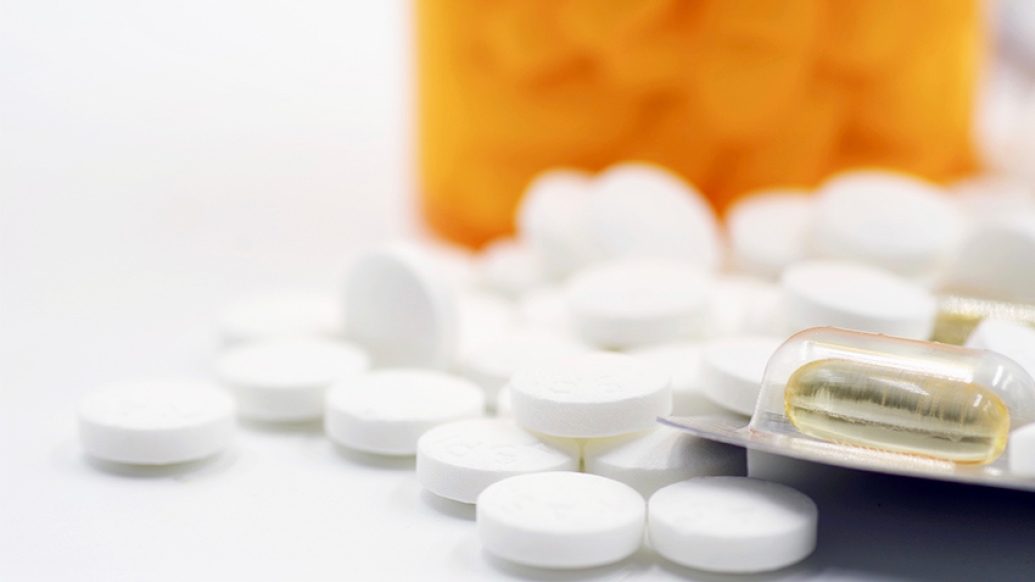New guidelines suggest a low-dose aspirin isn’t the answer when it comes to preventing a first-time heart attack or stroke.
12:56 PM
Author |

Each year, more than 805,000 Americans experience a heart attack according to the American Heart Association, and another 795,000 suffer a stroke based on information from the Centers for Disease Control and Prevention. These statistics, along with the fact that cardiovascular disease is the leading cause of death in the nation, have many individuals looking for ways to reduce their risk.
But if you've been taking a daily low-dose aspirin as a way to ward off heart disease or stroke, new guidelines suggest it may be time to reconsider.
Cardiologists like Abbas Bitar, M.D., of the University of Michigan Health Frankel Cardiovascular Center, are raising a red flag based on recommendations by the United States Preventive Services Task Force, an independent panel of national experts in disease prevention. The Task Force recently outlined new recommendations for everyone 60 years of age and older, as well as those between the ages of 40 to 59 who are at moderate to high risk of cardiovascular disease.
Aspirin as a primary prevention measure
The suggested changes say that no one over the age of 60 should take aspirin as primary prevention against cardiovascular disease. Primary prevention is a term for avoiding a first heart attack, ischemic stroke (caused by a blockage of blood flow to the brain) or other type of cardiovascular issue. Low-dose aspirin might be considered for individuals age 40 to 59 who are at moderate risk of developing cardiovascular disease and do not have an increased risk of bleeding.
Bitar says his moderate- to high-risk patients are evaluated using the Framingham scoring system, which helps to predict a person's risk of heart attack and stroke. "The system measures factors like HDL cholesterol, total cholesterol, blood pressure, age, sex and smoking habits," he said.
For years, aspirin was considered a safe way to prevent heart disease because it served as an over-the-counter medication that thins the blood, thus reducing the risk of clot formation — a precursor of heart attack and stroke. But experts now warn about the risk of internal bleeding from consuming aspirin.
"Taking aspirin on a daily basis irritates the lining of the stomach and bowels, which can lead to bleeding in the digestive system," said Bitar. For those who have not experienced a cardiovascular event, the benefits of a daily aspirin do not outweigh the risk of bleeding, he says.
"For patients of any age with no prior heart attack or stroke, and no risk factors, there is no need to be on an aspirin regimen as a primary preventive measure unless advised by their doctor," said Biter. "However, patients should discuss the benefits and risks of taking a daily low-dose aspirin with their doctor before making any changes in their daily regimen."
For patients who have experienced a cardiovascular event such as a heart attack or a stroke, low-dose aspirin is recommended for secondary prevention purposes. "The benefits outweigh the potential bleeding risk for this population," said Bitar.
Other ways to reduce your risk for heart disease
Although non-modifiable risk factors such as age and genetics weigh heavily on a person's chances of developing cardiovascular disease, there are measures individuals can take to reduce their risk factors. Bitar encourages his patients to incorporate lifestyle changes such as eating a healthy, plant-based or Mediterranean diet, getting regular exercise, avoiding smoking, improving sleep habits and reducing alcohol use.
"Blood pressure control, weight loss and well-controlled diabetes are some of the other primary and, for many patients, secondary preventive measures that can significantly reduce your chances of cardiovascular disease altogether or help you avoid a second cardiovascular event," said Bitar.
MORE FROM MICHIGAN: Sign up for our weekly newsletter
Like Podcasts? Add the Michigan Medicine News Break on iTunes, Google Podcasts or anywhere you listen to podcasts.

Explore a variety of healthcare news & stories by visiting the Health Lab home page for more articles.

Department of Communication at Michigan Medicine
Want top health & research news weekly? Sign up for Health Lab’s newsletters today!





